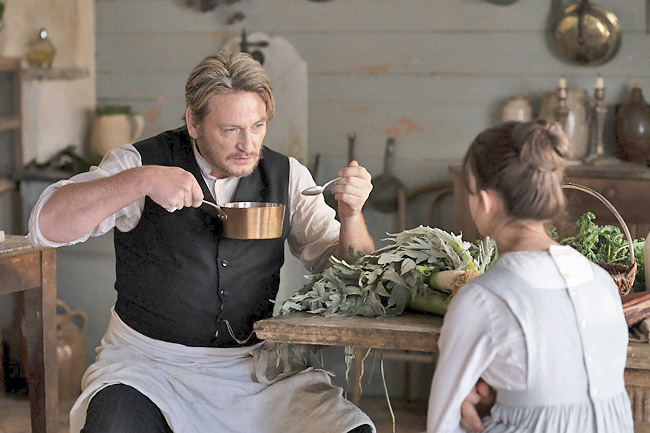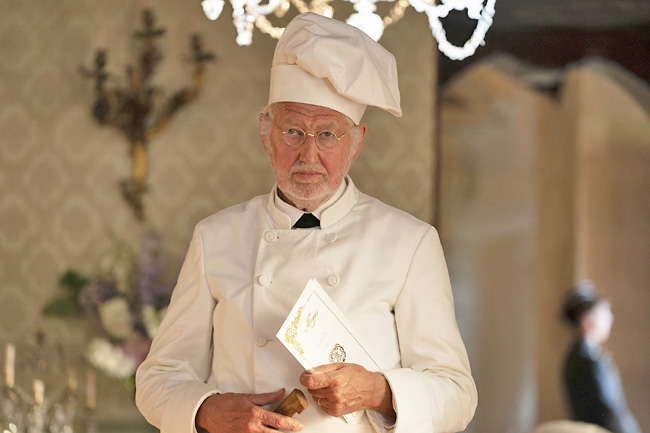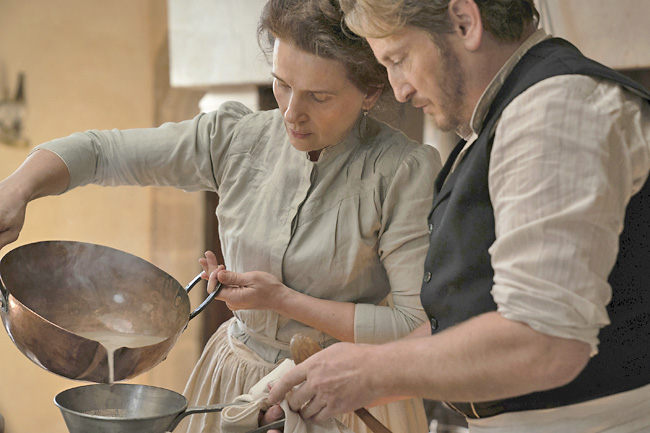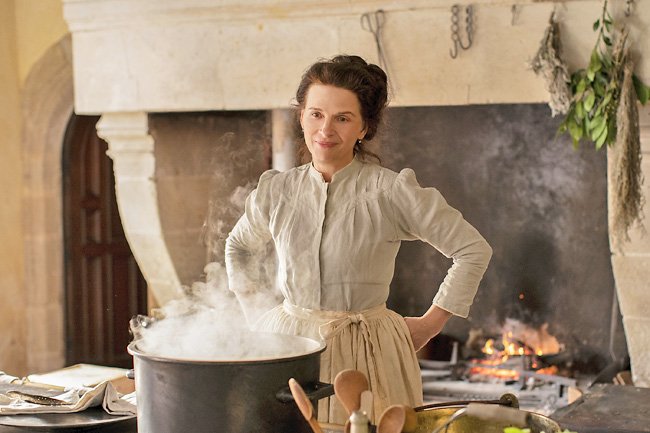AP – The Taste of Things should come with a warning: Audiences may be tempted to abandon work as they know it and start a beautiful, calm new life in the French countryside devoted to the culinary arts.
There is something rather cruel about releasing a film this lovely and voyeuristic in the dead of February, in which the cinematic gardens are lush, the game is fresh, the atmosphere is tranquil, the distractions are non-existent, the conversations are intellectual and the goal is shared. But maybe that’s why we need movies like this. It’s pure escapism and the cost of the movie ticket is slightly more affordable.
The film is fictional, a sort of prequel to Marcel Rouff’s The Life and Passion of Dodin-Bouffant, Gourmet, from 1924, itself loosely inspired by 19th Century French epicure Jean Anthelme Brillat-Savarin.
But the food is real, imagined by three-star chef Pierre Gagnaire and prepared on set by Michel Nave. The Taste of Things is a cinematic expression of the art of cuisine. The sounds of cooking provide the score. The visuals seem to transcend the screen in a very mystical way.
Director and screenwriter Trྦྷn Anh Hùng and cinematographer Jonathan Ricquebourg use the camera as almost a sous chef, letting the audience feel like they’re in the flurry of everything in the kitchen as well. It is not chaotic like The Bear or any number of those shouty reality shows.




This is more like a ballet – precise, delicate and quiet. And the luminous Juliette Binoche is the regal principal, guiding the proceedings with grace and a slightly undone bun.
Of course, there’s a story here, too, the side dish to the main course, which focuses on Dodin’s (Benoît Magimel) relationship with his cook Eugénie (Binoche).
Theirs is a long and deep companionship, forged by a shared passion for food and a mutual respect that belies normal dynamics between boss and employee.
It is kind of the ultimate in intimacy, being on the same page about quality and pairings and the seemingly very mundane, ordinary question of “what are we eating tonight?” Dodin wants to marry her. She refuses.
It’s a conversation they’ve probably had many times before and perhaps why the dynamic continues to work.
There is a moving story in here about love in ones “autumn years” as Dodin calls it.
Everything is understated and lovely, including their very adult conversations about marriage and the right to lock their doors at night. There are some tropey flourishes, too, like a precocious young girl reciting flavour notes with suspicious specificity, and foreshadowing illness by showing a character who suddenly feels faint.
They stand out as common choices in a film that is anything but.
Hùng won the best director award for The Taste of Things at the Cannes Film Festival last year, and it was selected to represent France in the Oscars but was passed over for a nomination.
This technicality should not dissuade anyone from being interested in the film – just a reminder of how unfair it is that all of world cinema is reduced to five nominations every year.
Just make sure you either go in satiated or with set plans for your post-viewing meal.
In our world of gross TikTok hacks for one pot meals, it’s a balm to see things slowed down and with many, many beautifully rustic copper pots and cast-iron pans. And don’t be surprised if everyone suddenly starts making pot-au-feu, which, come to think of it, is actually a perfect meal. – Lindsey Bahr


